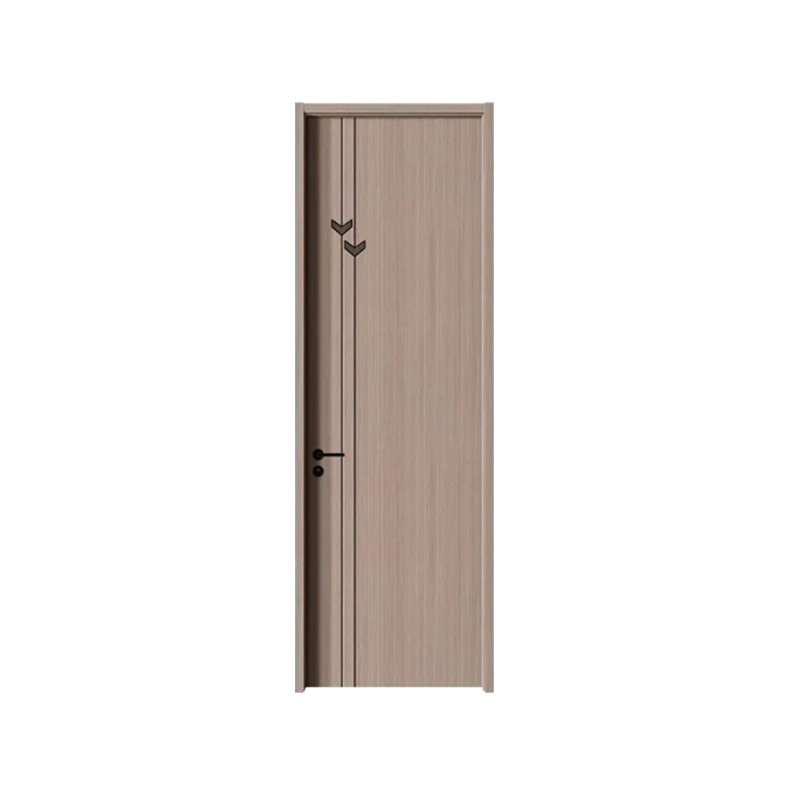Supply Cheap Interior Bedroom PVC Plywood Doors With Frame
In recent years, sustainable building practices have become an essential consideration for architects, builders, and homeowners. As the demand for eco-friendly materials rises, PVC plywood doors have gained attention for their ability to meet environmental and functional needs. These doors, made from a combination of polyvinyl chloride (PVC) and plywood, offer a sustainable solution that addresses both aesthetic and practical concerns in construction. This article explores how PVC plywood doors contribute to sustainable building practices.

One of the more significant ways PVC plywood doors support sustainability is through their durability. Unlike traditional wooden doors, PVC plywood doors are resistant to moisture, rot, and insects, reducing the need for frequent replacements. This increased longevity helps conserve resources over time, as fewer materials are required to replace damaged or worn-out doors. By investing in PVC plywood doors, homeowners and businesses can reduce waste and lower their environmental footprint.
Another key sustainability benefit of PVC plywood doors is their energy efficiency. These doors provide reliable insulation, helping to regulate temperature inside buildings. The combination of PVC and plywood helps to create a barrier that prevents heat from escaping during winter and keeps interiors cool during the summer. As a result, buildings with PVC plywood doors are likely to require less energy for heating and cooling, contributing to lower energy consumption and reduced greenhouse gas emissions. This energy-saving property makes PVC plywood doors a valuable component in green building design.
PVC plywood doors are also considered a more eco-friendly choice compared to traditional solid wood doors. The production of PVC plywood doors requires fewer natural resources than harvesting large quantities of timber. Moreover, the manufacturing process of PVC plywood doors often involves recycling PVC material, which helps reduce plastic waste and promotes a circular economy. By choosing PVC plywood doors, builders can contribute to the reduction of deforestation and less the environmental impact associated with wood harvesting.
The low maintenance requirements of PVC plywood doors also support sustainable building practices. Traditional wooden doors often require regular painting or sealing to protect them from weathering. In contrast, PVC plywood doors do not need such maintenance, as they are inherently resistant to damage caused by the elements. This reduces the need for chemical treatments and paints, further less the environmental impact associated with maintaining the doors. The long-lasting nature of PVC plywood doors also ensures that fewer resources are consumed for repairs or replacements, making them a more sustainable choice over time.
In addition to their environmental benefits, PVC plywood doors offer versatility in design. They can be customized to suit a wide range of architectural styles, making them suitable for both modern and traditional buildings. The combination of PVC and plywood allows for a variety of finishes and textures, offering homeowners and designers more options without compromising sustainability. This versatility ensures that PVC plywood doors can meet the aesthetic preferences of different projects while still contributing to environmentally conscious building practices.
Furthermore, PVC plywood doors are a reliable choice for buildings in areas with high humidity or bad weather conditions. The resistance of PVC plywood doors to moisture and corrosion makes them particularly suitable for coastal or rainy regions, where other door materials may degrade quickly. By choosing PVC plywood doors in these environments, builders can avoid frequent replacements and reduce the need for resource-intensive repairs, further contributing to sustainable building practices.
Finally, PVC plywood doors are fully recyclable at the end of their lifespan. As sustainability becomes an increasingly important factor in construction, the recyclability of materials plays a crucial role. PVC plywood doors can be broken down and repurposed, ensuring that they do not end up in landfills. This recyclability makes PVC plywood doors a more sustainable option compared to other door materials that may not have the same end-of-life benefits.
In conclusion, PVC plywood doors contribute significantly to sustainable building practices through their durability, energy efficiency, low maintenance requirements, and environmental friendliness. By incorporating PVC plywood doors into construction projects, builders and homeowners can make a positive impact on the environment while enjoying a high-performance, long-lasting product. As the construction industry continues to embrace sustainability, PVC plywood doors will play an important role in shaping the future of eco-friendly building solutions.

 English
English 中文简体
中文简体